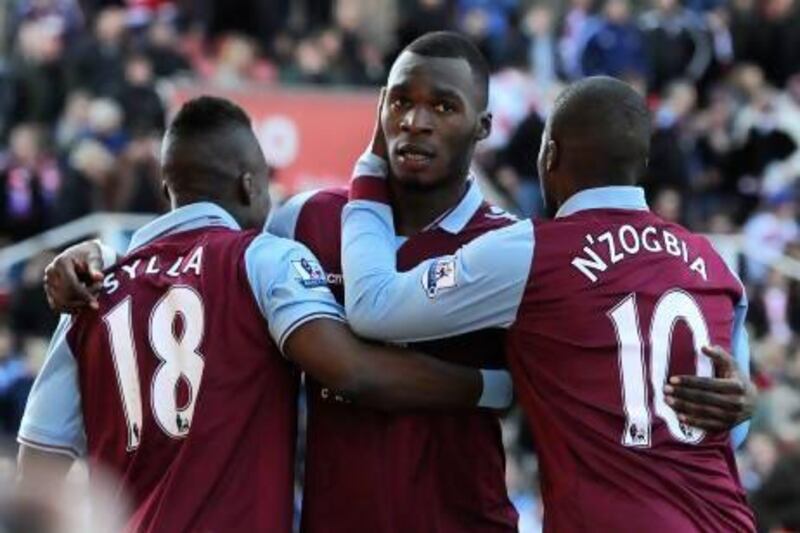Many adjectives can be deployed to describe Paul Lambert. "Subtle" is not one of them. The Aston Villa manager has proven to be a sledgehammer to the old guard at one of England's most distinguished clubs.
He has been the scourge of the ageing, the overpaid and the underperforming and a reminder that his demolition job is not complete came when his squad numbers for the forthcoming season were announced.
The jerseys between Nos 35 and 42 were reserved for the unwanted. Lambert's eight pariahs included five of Villa's best-known players: Shay Given, Charles N'Zogbia, Darren Bent, Stephen Ireland and Alan Hutton, who arrived at the club with a combined cost of almost £50 million (Dh282m). But Lambert is the antidote to these celebrity-obsessed times: fame irritates him. He prefers the unknown and the untried.
So there should be no surprise that his arrivals are unrecognisable to those whose focus is concentrated solely on the English Premier League. Jores Okore, 20, a Danish centre-back, and Antonio Luna, 22, a Spanish left-back, are charged with improving an inconsistent defence. The Danish striker Nicklas Helenius, 22, joins the attack and Leandro Bacuna, a 21-year-old Dutch winger, forms part of the supply line. So does Aleksandar Tonev, who is the closest thing to an experienced addition. The Bulgarian, 23, has all of 11 caps for his country and has never played in a major European league.
But Lambert is following the Benteke model, to give his policy a name. Last year's raw newcomer arrived without fanfare, but quickly gained admirers, some of them at bigger clubs.
One of the signings of the season, Benteke was involved in 49 per cent of Villa's goals while his value escalated by nearer 300 per cent. Now he is worth nearer £25m. The bruising Belgian, displaying the fondness for a U-turn that suggests a future career in politics, went from requesting a transfer to signing a new contract within a few days. Despite Lambert's trading, it is the most significant piece of business Villa have done this summer.
The danger was that Benteke was too good a buy, that his career was developing too quickly for Villa to keep pace. If the Midlanders are upwardly mobile, they need to be: they have endured three successive seasons of struggle under three different managers.
Only Lambert has emerged in credit, which is an achievement in itself considering the three consecutive defeats to Chelsea, Tottenham Hotspur and Wigan Athletic over Christmas by an aggregate score of 15-0, plus the embarrassing League Cup semi-final defeat to the League Two side Bradford City.
Under other circumstances, dissent would soon have become audible. The Villa crowd stayed with their team, recognising the scale of Lambert's challenge and realising that a lowly finish with young players and attacking football was better than the torpor of life under Alex McLeish. They were rewarded as the final 10 games brought five wins and two draws.
Besides ensuring the prospect of relegation receded and then disappeared, it suggested a corner has belatedly been turned and offered an indication of Villa's ability.
If each of those victories came against sides in the lower half of the table, it matters not: under first McLeish and then Lambert, Villa had recently come off a run of 41 games, only five of which ended with them banking the three points. If winning is a habit, so was not winning.
Now it has to become a more regular occurrence. If Lambert's overhaul is not quite complete - the quest to clear out his predecessors' players continues, as their squad numbers show - he has a sizeable group he has either bought or promoted. Whoever is sitting unhappily in the stands, this will be his team on the pitch.
Like Brendan Rodgers and Andre Villas-Boas, other futuristic choices last summer, he was afforded patience in his debut campaign and will be judged on this year. Neither the Liverpool nor the Tottenham manager, despite their oft-discussed philosophies, has been quite the revolutionary force Lambert has.
Now the task for the Scot and his band of intrepid unknowns is to turn potential into results. After three seasons of underachievement, the time has come for achievement.
Follow us
[ @SprtNationalUAE ]






